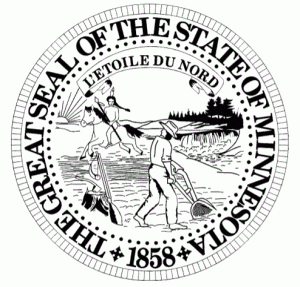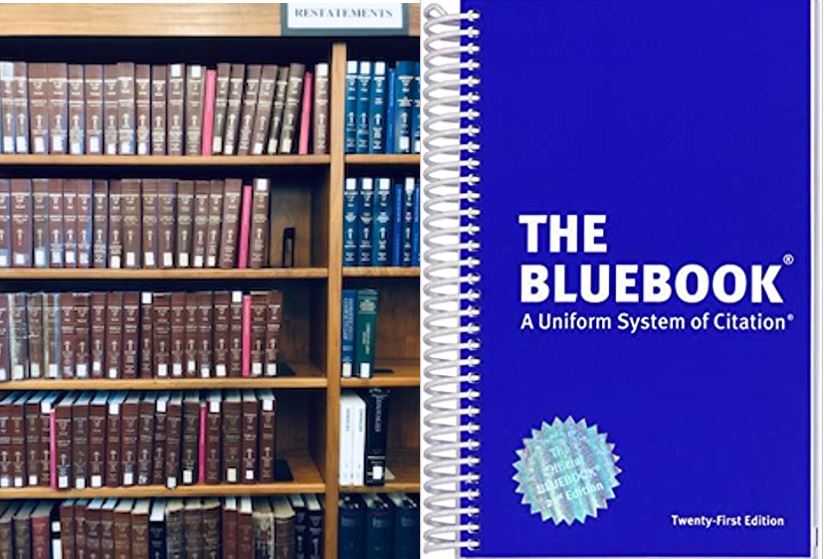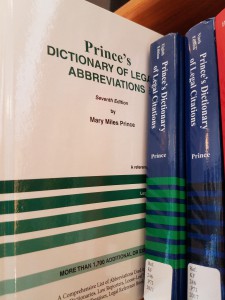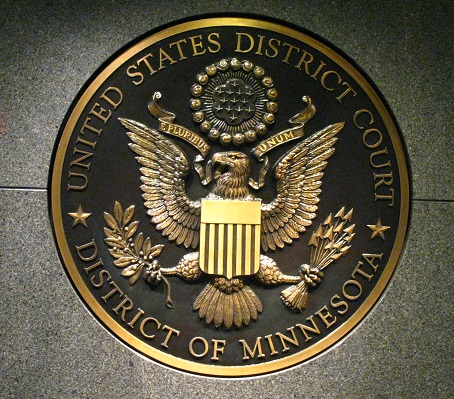
The last post described some very useful resources that are only available for free if you visit the law library. But to be fair, we should point out that there are several very useful sources that are only available online. Every legal researcher should know about these items.
Minnesota Title Standards
The Minnesota State Bar Association has been making their publications accessible through its website. One of the very useful publications is Minnesota Title Standards. The standards are edited by the MSBA’s Real Property Law Section, Title Standards Committee, and was originally published in 1949.
Why are Title Standards important? From the preface:
The purpose of the title standards is to state in concise language how the real property bar views various title problems within the state and indicate how the majority of experienced Minnesota title lawyers would probably deal with such problems as they come up from time to time. … In examining a title, lawyers must identify the appropriate standard for approving or objecting to transfers and encumbrances found in a chain of title. The judgments an attorney exercises will also depend on applying justifiable presumptions as to certain matters and, in particular situations, these presumptions may be strong, medium, or weak. In this situation, it is extremely beneficial for an examiner to have an indication of how other examiners would treat these problems.
Many of the present State Title Standards were adopted by the Real Property Law Section of the State Bar Association at its annual meeting in June, 1946, and have been reviewed and updated since. The most recent edition was updated in 2017, and is freely available to everyone on the Minnesota Bar Association, Section of Real Property Law’s web page.

Minnesota State Register
The Minnesota State Register is the official publication for proposed and final administrative rules, executive orders, agency notices, state grants and loans, state contracts, and more. Since 2004, the State Register has only been available online at the Revisor of Statutes website (or if you must pay for your regulations, Minnesota State proposed and adopted regulations are on Westlaw; the Minnesota State Register is available via Lexis in their MNSTR file.)
The State Register is the official source, and only complete listing, for all state agency rulemaking in its various stages. State agencies are required to publish notice of their rulemaking action in the State Register. Approximately 80 state agencies have the authority to issue rules. If they are contemplating amending an existing regulation or want to implement a new one, the agency must put notices in the State Register.
Why is the State Register important? If you practice in areas of law regulated by state agencies; if you or your clients bid on government contracts or submit RFPs; if you want to participate in the rule-making process, this is the only comprehensive and updated publication that tracks changes to the administrative rules.
If you would like to read more about the process, the Minnesota Department of Health has written Minnesota Rulemaking Manual: A Reference Book for the Practitioner, edited by Patricia Winget. Special kudos to her Rulemaking Progress Chart, which explains the process on one page.
In addition, the Minnesota Office of the Revisor of Statutes also publishes two books that help understand the rulemaking process: Rulemaking in Minnesota: A Guide by Paul M. Marinac, Deputy Revisor of Statutes and Minnesota Rules: Drafting Manual with Styles and Forms.

House Chamber, Minnesota Capitol Building.
Minnesota House Legislative Research
The Minnesota House of Representatives has a research staff that provides non-partisan research services to all House members. It was established in 1967 to provide information for representatives so that House members and Committees could make informed decisions as they proposed, implemented, and amended Minnesota law. The House Research department creates publications and other web-based materials that provide information and analysis for use by all members of the House, other staff, and the public.
In addition, attorneys on the research staff advise the House on legal matters that arise from conducting House business. The research staff also compile various data, produce tax-related simulation runs, and provide data lookup tools, and in addition, they also summarize pending and enacted legislation.
House Research is nonpartisan. Its services are available to all members of the House. The department strives to be politically neutral and impartial on issues.

Minnesota State Law Library.
Minnesota State Law Library
One last place that has oodles of useful information for free is found at the Minnesota State Law Library. The law library staff produce and maintain Library Research Guides on a myriad of topics. These guides are great for getting the basic information about a particular area of law, including references to statutes, regulations (if applicable), court rules, references to credible websites (Nolo Press, LawHelp MN, legal aid organizations), as well as listings of books (with call numbers) on the topic. If applicable, it will include links to appropriate forms, as well as suggestions for related topics that can be helpful.
These guides are very useful for attorneys who need quick access to materials on a topic they aren’t familiar with. For example, a criminal law attorney might be asked by one of his clients if he could help out with a child custody issue; a bankruptcy attorney is contacted by his cousin for information about his workers’ compensation claim. The guides have all of the primary information necessary to dive into a new area of law.
The most recent library guide is one for self-represented litigants titled, “Representing Yourself in Court.” This newly updated guide has answers to many of the questions that SRLs have, as well as links to helpful articles and videos, instructions, forms, books, legal clinics, self-help centers, legal referrals by county, and of course, links to county law libraries.
The resources described above are just a handful of places to get accurate legal information for free. For more suggestions and referrals, please visit us at the law library. See you soon!













